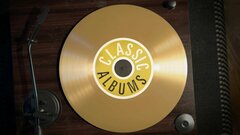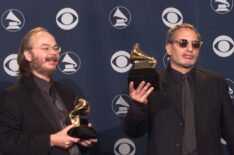Steely Dan
Band
Members: Michael McDonald
Though they were one of the most successful bands of the '70s, with a long string of hits and platinum-selling albums, almost everything about Rock Hall of Famers Steely Dan stood at odds with rock convention. They were jazz players at heart, more a studio concern than a live band, and they eschewed raw spontaneity for precision-tooled sonic perfection. Singer/keyboardist Donald Fagen and guitarist/bassist Walter Becker were Steely Dan, with a long parade of studio superstars lending a top-shelf sheen to their discography.
Fagen and Becker started playing together in the late '60s as students at Bard College in upstate New York. After graduating, they tried their hand at being songwriters for hire (and served as part of the backing band for fading '60s pop stars Jay and the Americans) before forming Steely Dan in 1972. Their debut, Can't Buy a Thrill, made them a success straight out of the gate, bearing the hits "Reelin' in the Years," "Dirty Work" (their only single featuring nominal lead singer David Palmer, who left after this album) and "Do It Again."
For their first three albums, Steely Dan were basically a self-contained group, also including guitarists Jeff "Skunk" Baxter and Denny Dias and drummer Jim Hodder, all of whom helped maintain the band's success in the first half of the '70s. Then a schism occurred, sparked largely by Becker and Fagen's disinclination toward touring; from 1975's Katy Lied onward, the band was strictly the two of them, with stellar sidemen like guitarists Larry Carlton and Elliott Randall, and drummer Bernard "Pretty" Purdie aiding as needed.
Their music became more complex, sophisticated, and jazzy as they went along, reaching its apex with 1977's Aja, but Steely Dan somehow managed to score hit singles like "Deacon Blues" and "Peg" regardless.
After the relatively simpler, more groove-based Gaucho in 1980, the Dan took a long hiatus, with both members pursuing their own projects. They began touring again in 1993, but didn't release another album until 2000's Two Against Nature, which picked up where Gaucho left off stylistically. They released only one more album, 2003's Everything Must Go, though they continued touring through 2017, when Becker died of an undisclosed illness.
Credits

Classic AlbumsStream

FM


